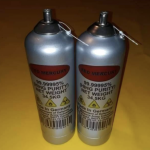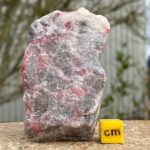1-Phenyl-2-propanone (P-2-P), also known as benzyl methyl ketone (BMK), is a colorless or slightly yellowish liquid. It is characterized by a density similar to water and a pleasant smell. Although there are few legal uses of BMK, such as in the production of the drug propylhexedrine, BMK is most commonly used as an illicit compound for the illicit production of amphetamines.
In fact, BMK is identified using conventional methods such as gas chromatography, NMR or HPLC. The
methods are expensive, time-consuming and require trained operators. It seems clear that there is an urgent need to develop a new, simple and rapid method to detect the presence of BMK traces.
In this work, a novel chemically synthesized BMK derivative, covalently bound to an immunological carrier, was used to produce antibodies against BMK molecules. A fluorescence polarization-based bioassay was developed using the generated anti-BMK antibodies and the BMK derivative.
The assay shows interesting analytical results with a detection limit below 100 nM and an almost linear response up to 600 nM. Interestingly, the proposed test can be performed with a configurable portable device and used by untrained personnel at border and customs checkpoints or for quick spot checks.



